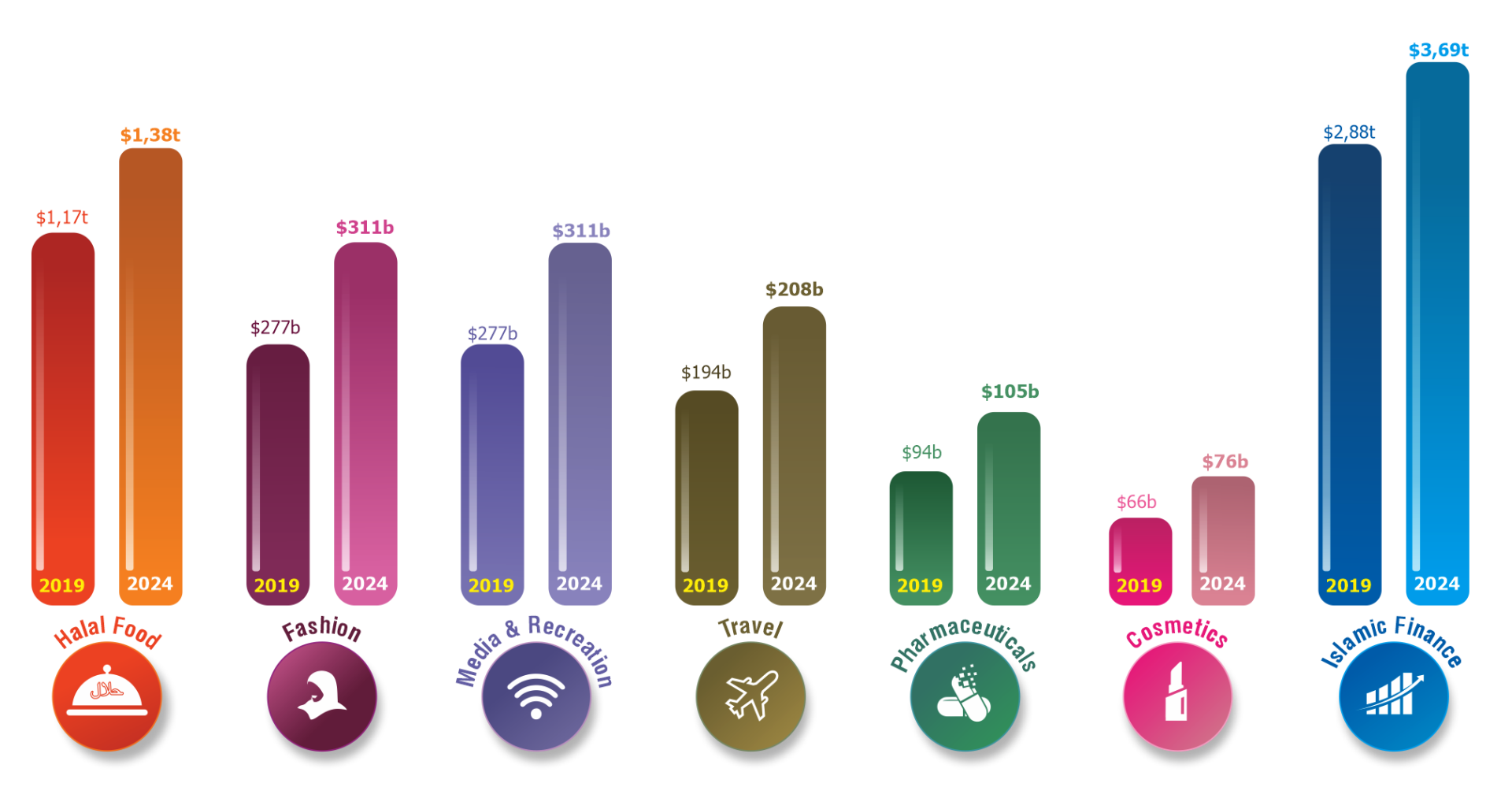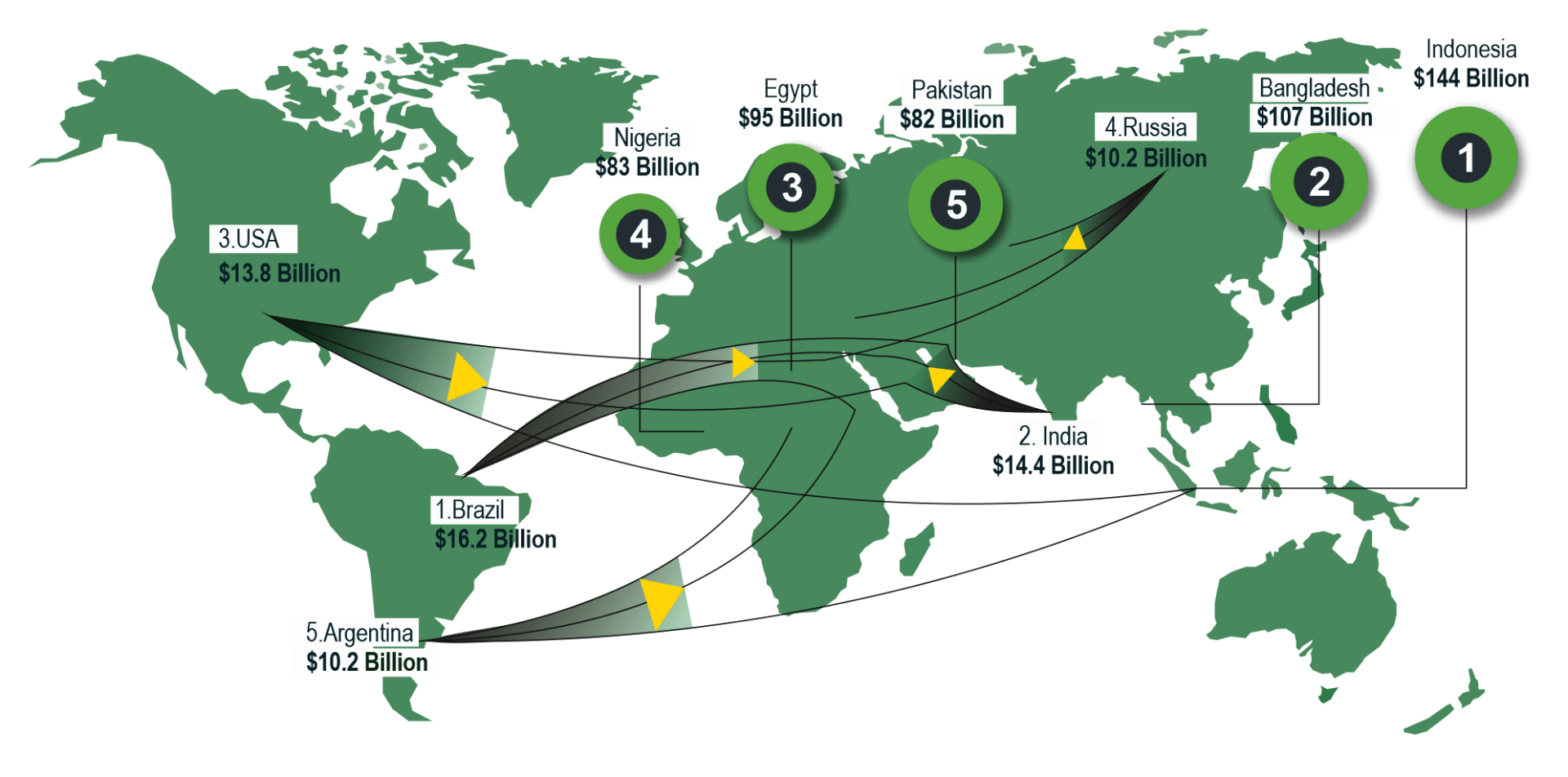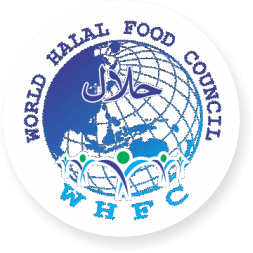Halal Market
Halal commerce is emerging as one of the most profitable and influential market areas in the world.
Halal Market in the World
Halal commerce is emerging as one of the most profitable and influential market areas in the world. According to data and research from the Arab-Brazilian Chamber of Commerce, in 2020, the number of Muslims economically active in the world is approximately 1.9 billion, an economy that grows faster than the world average: 6.2% in Islamic countries against 5.7% in other countries. If it were a country, the Islamic world would be the world's third-largest economy, behind only the United States and China.
Islam will be the fastest-growing religion over the next four decades. This is what the Pew Research Center indicated in the report entitled "The Future of the World's Religions. By 2030, the number of Muslims could reach 2.2 billion, worldwide. If the prediction is confirmed, Islam will be practiced by 25.8% of the world population.
Halal is not only a religious issue; it's becoming a global symbol of quality assurance and a lifestyle. Non-Muslims that search for a healthier diet are identifying themselves with this concept, because Halal meets everything healthy, being directly connected to the healthiness of living beings, humans, and animals.
This market force should not be underestimated: The Muslim population is expanding in the Middle East, North and South Africa, Southeast Asia, parts of the former Soviet Union, and China. These are regions that represent a lucrative chain for the food market. Nowadays, the two biggest markets for Halal products are Southeast Asia and the Middle East.
According to the State of the Global Islamic Economy Report, the Halal market in the world is estimated to be $5,74 trillion by the year 2024 and encompasses various segments such as agribusiness, processed foods, pharmaceuticals, personal care, cosmetics, clothing, banking, and finance, logistics, storage, media, tourism, and distribution. The world market for Halal food and products has great growth potential. Still based on the State of the Global Islamic Economy report, between 2019 and 2024, the Halal food and drinks market tends to have a surplus of US$21 billion; Tourism, US$14 billion; Fashion, US$34 billion; Media, US$34 billion, Pharmaceuticals, US$34 billion; cosmetics, US$10 billion and Islamic finance, US$81 billion.
The biggest markets for Halal products are Indonesia, Turkey, and Pakistan. Many people believe that the Muslim population is only in the Middle East, but the biggest concentrations are in South and Southeast Asia - and the Asian continent has more than one billion Muslims or 70% of the total of those who profess the Islamic faith.
2019: US$ 4,88 Trillion / 2024: US$ 5,74 Trillion
Fonte: State of The Global Islamic Economy

Halal Market in Brazil
Brazil shows potential for growth in this large market. In 2018, chicken exports reached US$ 1.8 billion, which is equivalent to 1.2 thousand tons of chicken exported by Brazil, destined for markets that require Halal slaughter. Their main destinations are Saudi Arabia, United Arab Emirates, Kuwait, Iraq, and Yemen.
The beef trade generated revenue of US$ 888 million, which represents the export of 265 thousand tons to Arab countries, mostly destined to Egypt, Saudi Arabia, the United Arab Emirates, Lebanon, and Jordan.
According to data from the latest Global State of the Islamic Economy Report, before the pandemic, Brazil was the world's largest exporter of Halal food. In 2019, the country exported $16.2 billion in this type of product, 12% more than the second place, India, which traded $4.4 billion.
The market for industrialized products is growing and Brazil is seeking part of this trillion-dollar slice. Currently, there are approximately 350 industries certified by FAMBRAS HALAL exporting various products, to countries like the USA, Russia, Saudi Arabia, Arab Emirates, Malaysia, Indonesia, Singapore, Japan, Europe among others.
Today, 1.9 billion consumers in the world are Muslim. It is estimated that for every three people, one will be Muslim by the year 2060. It is a market concentrated not only in the Middle East and North Africa but also in countries like Brazil itself.
Since the foundation of FAMBRAS, in 1979, mechanisms of access to Islamic countries were created, especially in the Middle East and Asia, contributing to the implantation of the system and concept Halal in the industries. Qualified labor was implanted to guarantee transparency and reliability to the Islamic countries. This way, it became possible to issue Halal certificates with a high level of credibility, making Brazil one of the most respected countries, when it comes to Halal products.
FAMBRAS HALAL puts the industrial sector in commercial evidence in this expanding market, starting a great growth trajectory with the elaboration of projects and actions that benefit the industries, besides the already existing and consolidated ones in the meat processing sector.
Ranking of countries with the best economy and development for Halal food and beverages.
Fonte: State of The Global Islamic Economy

Muslim Consumers
• They have the highest per capita income in the world;
• Highest population growth rates in the world;
• Growth of the fastest middle class in the world;
• Consumption researches in Europe and USA show that certified Halal foods are being searched also by non-Muslims, as the safest way to obtain healthy and quality food..
Do you want to join a gigantic market that moves more than 4.8 trillion dollars annually?
For information on how to certify your company and products, just fill in your details. Our team of experts will contact you for more information.







